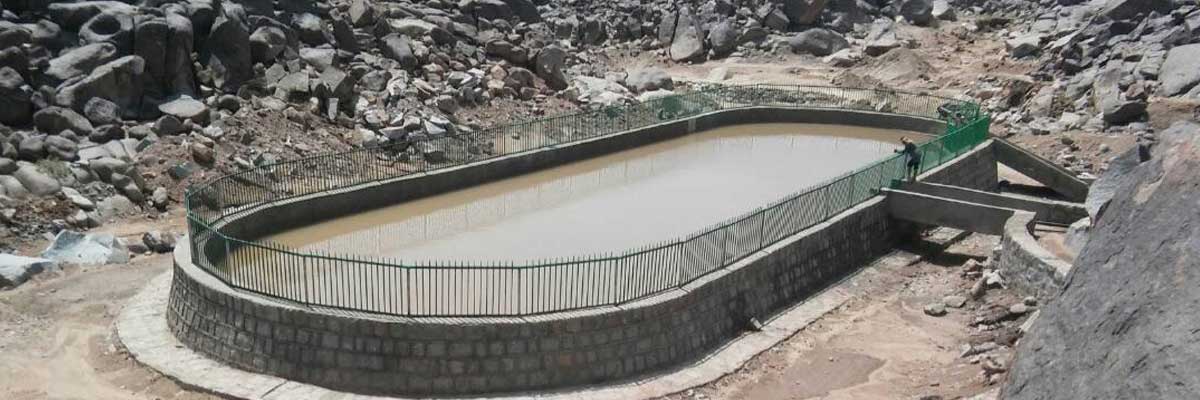Access to domestic used and potable water in Al-Anan area - Al-Jawf Governorate - is not easy, but getting 80 liters of water needs to take five kilometers to the nearest well in the area, or pay 20 thousand riyals to buy water tank and needs to wait 60 days until the role comes, the water available is highly salty and unfit for drinking.
The words can not describe the suffering of displaced persons and the people in the Anan area in order to provide clean and safe water. There is a single well about 5 kilometers away from the area. Even after reaching the well, getting water requires difficult negotiations with the owner. The women return half of the water that they wish to get it from the water.
Water dropper
Saleh bin Saleh Al-Barazi, chairman of the beneficiaries committee of the project of the reservoir and the rainwater harvesting barrier implemented by the Public Works Project, describes the previous suffering of the people as similar to the suffering of parents and displaced people in obtaining clean water, such as a household water dropper, which produces 20 liters of drinking water barely enough for a small family for one day to change into a source of water for an area in which dozens of families are displaced and indigenous as in the Anan area.
60 days
Prior to the intervention of the Public Works Project in the implementation of the reservoir and rainwater harvesting barrier , Saleh Al-Barizi confirms" 40 liters of water required women and children to walk 5 kilometers to reach the nearest well from the area in which they go into a new stage of suffering ( trying to get the approval of the well's owner for a whole day , and the second option , which is no less difficult than the first) is to pay 20 thousand riyals and wait 60 days, the time period for giving the family its role. The water resources available are salty and unfit for human use.
Water throughout the year
After the intervention of the project works with the implementation of a reservoir and a barrier to harvest rainwater, people breathed a sigh of relief and clean water was available throughout the year, especially in the winter and in large quantities. Water was provided for agriculture and improved the lives of people which was impossible in the past , Al-Barzi, , the chairman of the Committee of beneficiaries said.




